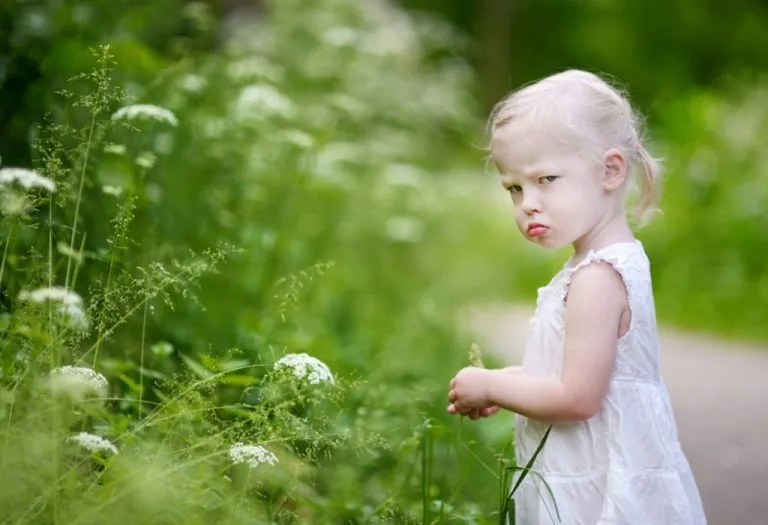How to Control Anger in Kids – Coping Strategies That Help

Everyone gets angry once in a while, and children are likely to lose their temper more often than adults. This anger can be a result of frustration, loneliness, fear, sadness, or feeling threatened. While anger cannot be categorised as bad outright, it is essential to look at how your child copes with this powerful emotion. Learning how to control anger in kids is crucial for their emotional development and social interactions. Parents and caregivers should teach their angry kids healthy coping mechanisms. The child may struggle with self-regulation, but with patience and guidance, they can learn to manage their emotions effectively.
Signs of Anger Issues in Children
By observing how your child deals with their anger, you can determine whether you need to worry about anger issues and think of anger management or not. Here are some signs that indicate a need for concern:
- Frequent anger
- Angry over the smallest of issues
- Angry outbursts that result in a loss of self-control
- Cannot express feelings clearly
- Reckless behaviour
- Not bothered about how their anger is hurting other’s feelings
- Speaks in a threatening manner
- Expresses aggression or violence through drawings or writings
- Has to be reminded to control their anger

Understanding what triggered the anger is the first step in helping your child cope. Through anger management methods, you can get your child to learn how to channel their anger and calm down gradually.
How to Teach Your Child to Control Their Anger
The easy way out is to punish your child by shouting at them and venting your anger, or cutting off privileges such as television time or playtime. But the best strategies for anger management in kids are those that encourage your child to cope with anger on their own. Here are some tips that can teach you how to deal with a child with anger issues.
1. Take a Break
Tell your child to take a break or a timeout by going to their room till they calm down. If your child is ranting, wait for them to finish before sending them away. However, if your child is aggressive or violent, then it is essential first to stop it. You can do that by making them sit down quietly until their anger dissipates. Teaching your child breathing exercises and counting from one to ten can be of help in calming them.
2. Improve Verbal Communication
Quite often, when children get angry, they throw tantrums, shout or hit because they do not know that anger can be expressed verbally too. Teaching them a ‘feeling vocabulary’, which is a list of words to show how they feel, can prove useful in helping children deal with anger. Some examples are words like angry, scared, furious, and irritated or sentences such as “ I am so angry now!” and “He is annoying me”, and so on.
3. Redirecting Anger
When anger is triggered, your child feels an adrenaline rush that gives them more energy and strength and also results in a louder voice. All these can lead to aggression or violence unless the adrenaline is channelised to something less harmful. So, you could get your child to vent their anger on a punching bag or shout into a pillow till the urge to get violent passes.

4. Show Empathy
When your child is angry, try to get them to talk about why they are feeling that way. This shows them that you are responding to their needs instead of just reacting. On seeing you lend a listening ear, your child is more likely to calm down. They realise that you are letting them express their feelings instead of simply judging them first. This makes it one of the most effective tips on how to handle an angry child.
5. Set Some Anger Rules
Make your child understand that it is alright to express their feelings and emotions especially anger, but anger is not to take on a physical form such as hitting or kicking. Let them know that screaming, calling names, or being mean is not acceptable and instead calmly talking things out is a better way. Enforce these rules of behaviour whenever your child is angry without exception to gradually see the results you want.
6. Change Your Behaviour
If you are in the habit of shouting when angry, then your children will also imbibe it. So, learn to control yourself by not yelling at your kids, no matter what the provocation. By staying calm and using an even tone, you will get across the message that it is possible to control feelings of anger and deal with it calmly without getting agitated.
7. Set a Daily Routine
Come up with a daily routine for your child to follow to help them cope with their anger better. Ensure they get about 30 minutes of physical activity each day through a sport or hobby to help them get rid of all the excess energy that can then feed anger. Make it a point to spend around 15 minutes one-on-one with each child, simply making conversation and bonding.
8. Take Preventive Action
Once your child flies off the handle, the situation gets difficult. So, for anger management, try to identify the cues that indicate your child is about to throw a tantrum and take steps to prevent it. You can do this by distracting them with an activity or even simply cuddling your child.

9. Identify a Safe Spot
Talk to your child when they are in a good mood and agree upon a safe location where they are to head when they are angry. For example, the child’s bedroom, the porch, or the backyard might be a safe spot for them to give vent to their feelings without being embarrassed in front of others or being disturbed by siblings who might then become the subject of their anger. Give the spot a fun name, such as ‘Parking Lot’ or ‘Hideaway’, to avoid any negative associations.
10. Find the Triggers
Observe your child to understand the particular situation or circumstance that triggers the outburst. There may be different things that set it off, but a pattern will emerge over time, and by avoiding these triggers, you will be able to contain the situation. If the triggers are unavoidable, then making your child understand the reason why such a reaction occurs can help them calm down.
11. Use Touch
Try to calm down your child during angry outbursts by hugging them or getting them to hold your hand. Touch can have a calming effect on many children and can help defuse a volatile situation instantly.

12. Appeal to Your Child’s Compassion
Tell your child how the outburst is affecting you. You could say that it saddened you as a parent to see your child behave in this way. Or you can try telling them that you are exhausted and could use some rest, so could they please find something else to do quietly?
13. Practice Problem-Solving Together
When your child is calm, discuss alternative ways to handle frustrating situations. Role-play scenarios where they might get angry and brainstorm solutions together, such as asking for help, walking away, or using “I feel” statements. This helps them develop constructive responses instead of reacting impulsively.
14. Use Positive Reinforcement
Praise your child when they handle anger appropriately, even in small ways. For example, say, “I noticed you took deep breaths when you were upset—that was amazing!” Rewards like extra playtime or a sticker chart can motivate them to keep practising self-control.
15. Encourage Creative Outlets
Provide non-destructive ways to express anger, such as drawing, writing, or playing music. For instance, your child could scribble their feelings on paper or compose a silly song about what upset them. Creative activities help release emotions while keeping aggression in check.
FAQs
1. Can certain foods or diets influence a child’s anger episodes?
Research suggests that excessive sugar, artificial additives, or food sensitivities (e.g., gluten/dairy intolerances) may exacerbate mood swings and irritability in some children. Observe if anger spikes after consuming specific foods and consult a paediatrician about potential dietary adjustments.
2. Why does my child only have anger outbursts with me, not others?
Kids often “unload” emotions on parents because they feel safest expressing vulnerability at home. While frustrating, this signals trust. Teach them healthier ways to communicate (e.g., “I need space” instead of hitting) and model calm responses to reinforce security.
3. Could underlying sensory issues be mistaken for anger?
Children with sensory processing challenges (e.g., sensitivity to noise, textures, or crowds) may react with outbursts when overwhelmed. Occupational therapy or sensory tools (weighted blankets, noise-cancelling headphones) can help them self-regulate without aggression.
Keeping the lines of communication open in your home is the right way of connecting with your children on all levels, and not just when they are angry. If these simple tips do not help you calm your child down over a period, then it might be time to seek professional help. A good therapist and some family counselling alongside individual therapy might help your child work through their feelings better.
Disclaimer: This information is just a guide and not a substitute for medical advice from a qualified professional.
Also Read:
How to Handle a Difficult Child?
Parenting Tips to Handle a Bossy Child
Tips for Parents to Handle Naughty Children
Effective Ways to Deal With a Stubborn Child
Was This Article Helpful?
Parenting is a huge responsibility, for you as a caregiver, but also for us as a parenting content platform. We understand that and take our responsibility of creating credible content seriously. FirstCry Parenting articles are written and published only after extensive research using factually sound references to deliver quality content that is accurate, validated by experts, and completely reliable. To understand how we go about creating content that is credible, read our editorial policy here.
























